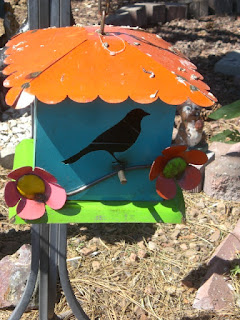In summertime, especially, I think of the relationship with nature enjoyed some eight hundred years ago by a simple man we know as St. Francis of Assisi. He wrote the lyrics to “All Creatures of Our God in King” sometime in the 1200s (yes, 800 years ago) and it was first published in a hymnal in 1623 (yes, nearly 400 years ago). Yet it continues to place high on lists of the world’s most beloved hymns.
Francis was born to a wealthy Italian family in 1182, converting to Christianity at a young age. He served as a soldier in his early years and endured a year as a prisoner of war in central Italy. After a time of personal turmoil, he renounced his earlier life of ease to become an itinerant evangelist to peasants throughout the Mediterranean lands. At 28, he founded the Franciscan Order of Friars, known for adopting his religious beliefs and simple lifestyle that kept him near nature. This was memorialized in a painting by the Italian artist Giotto, showing Francis feeding birds. Francis is said to have written sixty hymns of praise and worship in his desire to encourage church music.
There are many legends associated with his life, including supernatural behavior of animals. In one legend, one day while on a hike he came across a flock of birds. When they didn’t fly away, he decided to preach them a little sermon about praising their Creator for His protection and provision. Sermon over, they flew away happily. How true this is, we don’t know, but we do have Psalm 148, which tells all creation—the heavenly bodies, the weather, the landscapes, and all living things, to praise the Lord. We now know that scientists have catalogued 5,400 species of singing animals. Francis is also credited with setting up the first Christmas live nativity scene.
The year before he died, Francis was very ill and his vision was failing. It was at this time that he wrote the lyrics to “All Creatures of our God and King,” based on Psalm 148. At his deathbed he requested that Psalm 142 be read to him. It includes this verse: “When my spirit grows faint within me, it is you who knows my way.”
Our paraphrased English version of this hymn came out about 120 years ago through the efforts of a village rector in England, who prepared it for a children’s choir festival. It was forgotten for a time, then reappeared in an English hymnal in 1906 as a canon arrangement.
As we continue through the challenges and discouragements of the pandemic, it’s always good to shift gears and sing praises to God. St. Francis’s hymn would be a good start. Then consider two others about nature: “All Things Bright and Beautiful” (1848, by the wife of an Anglican bishop in Ireland) and “For the Beauty of the Earth” (1864, by an English scholar).
Even better—get out and take a walk, best in early morning when the birds sing their hearts out. And just listen.
------------
Sing along with this "You Tube" presentation with lyrics, featuring pipe organ and congregational singing at the large Grace Community Church in Sun Valley, California:
https://www.youtube.com/watch?v=VdfTekZcgGM



No comments:
Post a Comment